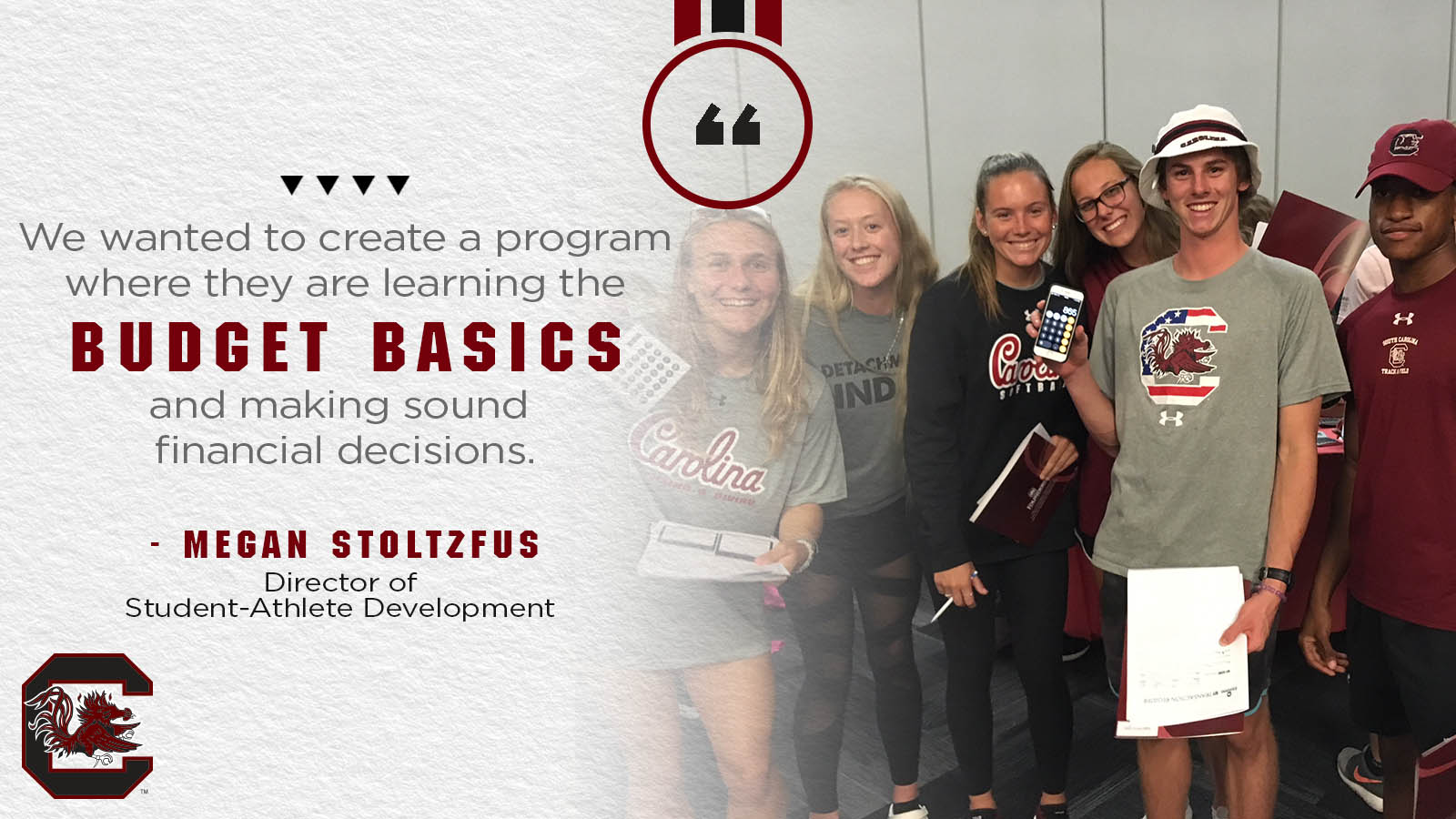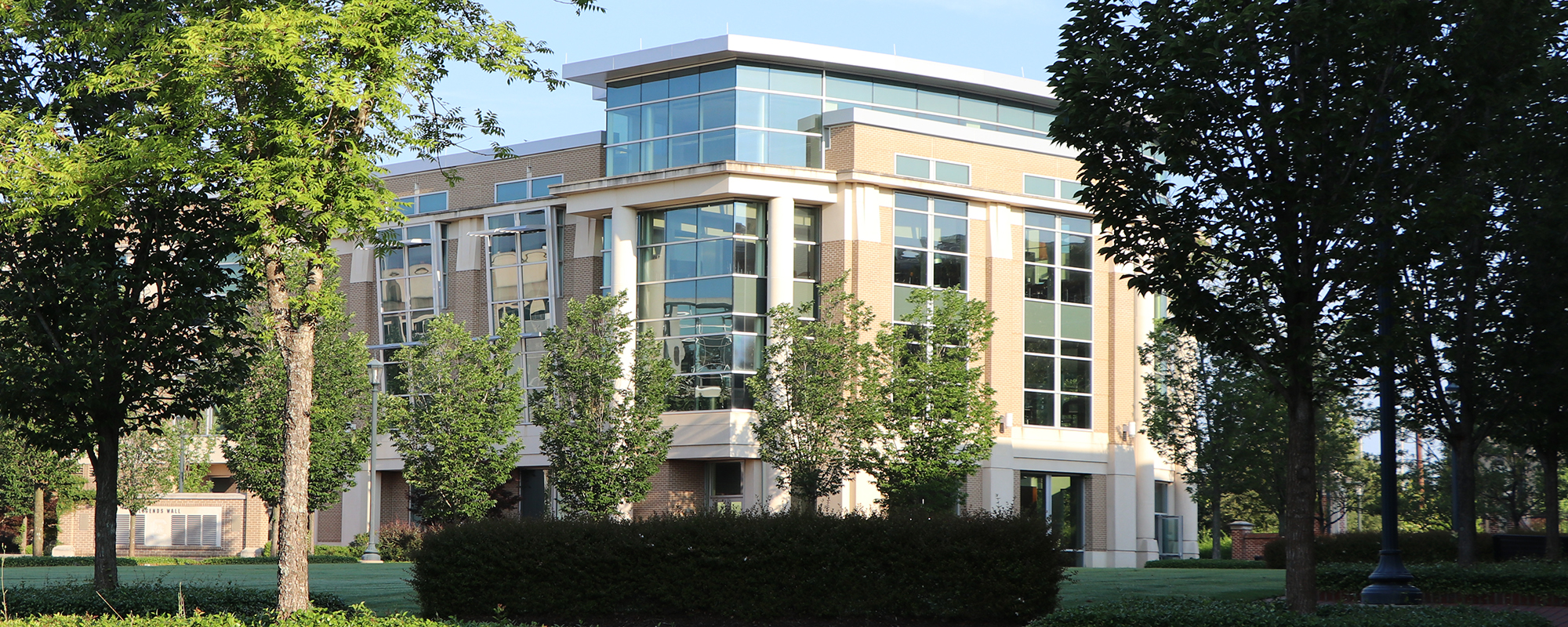
General
.
Freshmen Student-Athletes Get an Education in Finance
South Carolina student-athletes received an education on an important life skill Monday inside The Zone at Williams-Brice Stadium. The Athletics Department’s student-athlete development and life skills program partnered with Founders Federal Credit Union to create an interactive and innovative workshop for freshmen student-athletes to help them manage finances while in school.
“Founders has done their ‘Mad City Money’ program for high school students in the community for several years, but we’ve been working with them on recreating that program to make it applicable to student-athletes at South Carolina,” said Megan Stotlzfus, South Carolina’s Director of Student-Athlete Development. “It’s a full-on simulation where the student-athletes are handed a folder with an ‘about me’ sheet that will be real life based on their scholarship amount. They get a breakdown of the dollar amount of that scholarship, and they have to make the real decisions that they’ll be making here, such as which meal plan they will select, or whether they’ll live at 650 Lincoln and have all utilities included or if they decide to live off campus.”
“We call this a little ‘fake reality,'” said Wendy Culler, financial education representative from Founders Federal Credit Union. “Normally, with the money or scholarships they received, things like their housing is already taken out, and their meal plan is taken out. For this, the money is added back in, so they can see the true cost of living in college. Many students tell me that their parents bought their phone and their car, they pay for gas and insurance. Not tonight. They have to make the decisions. They’re going to know the true cost of their education, whether it’s from a scholarship, part time income, student-loan income, or any help their parents give them.”
“It made me think about choosing some better options.”
– Evan Miller, Track & Field
“Honestly, I probably didn’t go true to myself in some things for this because I realized if I did go true to myself, I would be in a lot of debt. So, I learned something,” said Carly Owens, a freshman with beach volleyball. “It makes me appreciate my parents right now!”
Founders had 24 staffers seated at various stations to not only help the student-athletes make informed decisions, but to also play the role of devil’s advocate as they acted as merchants who offered every day services that students need.

“The Founders representatives would act like sales people like you would see in any store who would try to ‘up-sell’ them on something,” Stoltzfus said. “It’s a really big commitment from Founders.”
“They have to make choices on where to live, food to eat, paying for a cell phone, whether they’ll have a car, with the goal of finding the true cost of going to school,” Culler said. “We give them all [fake] credit cards with a $500 credit limit. It’s important to use a credit card appropriately, and make sure your credit score is doing what it’s supposed to do. We want to teach them the cost of only paying the minimum payment on a credit card.
“They’re going to learn the true meaning of what it all costs. All those trips to the vending machine or coffee shops, and all those Uber rides add up.”
The student-athletes had mixed results with some students coming out ahead each month, and some overspending.
“I’ve done something like this is high school, but it’s always good to see what it’s going to take to be financially stable in college and after college,” said freshman men’s basketball student-athlete Nathan Nelson. “I came out ahead in this (exercise), but in this ‘reality’ I was probably living a little cheaper than I would in real life. It’s surprising how expensive housing and especially food, really is. I think I definitely appreciate things a little more now.”
“I think this will make me pay more attention to how much I spend every month,” said freshman cross country/track and field student-athlete Kira Jenkins. “It surprised me how much it was when you have to pay for your phone and your car.”
“It’s very important to balance your money, and it was important to go through this and spend your money like you would in real life,” said Whitley Ballard, a freshman with the beach volleyball team. “The food costs surprised me. I don’t have to take care of that very often. The rent surprised me as well. It makes me appreciate things more.”
The student-athletes also had to visit a table called the Fickle Finger of Fate where they might incur an unexpected expense that has to be deducted, such as car trouble, parking tickets or any other typical inconvenience.
“It was very helpful,” said Evan Miller, a freshman with track and field. “Usually my mom would be doing this stuff for me. It was new, and it was a good experience for me. I came out with no money in this. The hardest thing was picking out where I was living and my transportation. It made me think about choosing some better options.”
The student-athlete development and professional development program provides extended financial literacy programming later in their academic careers to help the Gamecocks understand how to manage their finances in life after college. Founders Federal Credit Union provided a similar workshop to other student-athletes who were participating in the South Carolina Beyond Sports Professional Development and Summer Internship Program last summer.
“We’ve always done financial education for our student-athlete, but we shifted some of the programming this year to offer it for our freshmen now,” Stoltzfus said. “We wanted to create a program where they are learning the budget basics and making sound financial decisions. This is the first time they’re on their own, and depending on their scholarship level, they are managing money that they haven’t had to before. We’re trying to make it as realistic as possible, so they will think about making a budget.”












